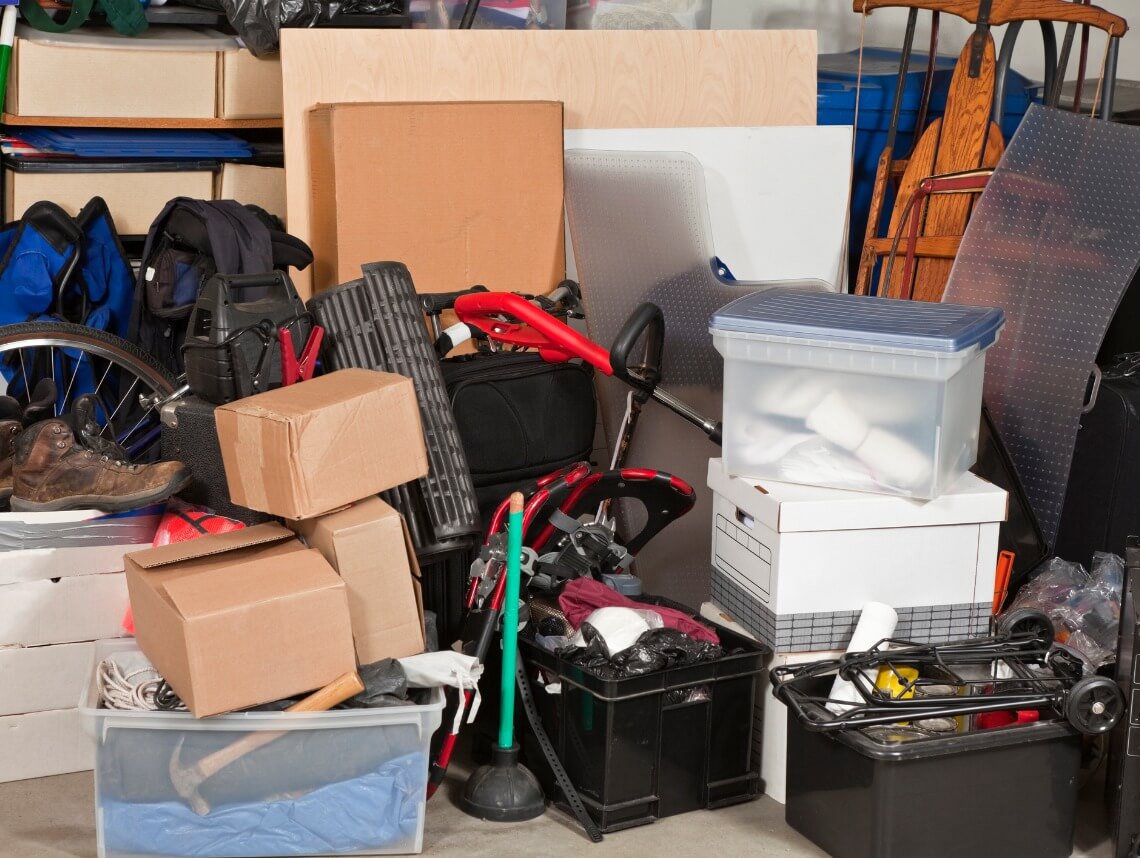Nearly five percent of the world’s population exhibits signs of clinical hoarding, engaging in compulsive purchasing, acquiring, and saving of items that have little or no value to individuals. For many seniors, these items clutter living spaces over time, posing many threats to their overall safety and well-being (increasing the risk of falls, fire, and illness).
Take a look at why seniors are more prone to this type of behavior and ways for family caregivers to intervene, helping seniors de-clutter their homes and improve their quality of life.
First, it’s important to determine whether your loved one’s tendencies should be of concern, understanding the difference between hoarders, collectors, and seniors who may only require a little assistance at home.
Collectors often take good care of the items they collect, displaying them proudly throughout the home.
Hoarders, on the other hand, often let items pile up in disarray, severely affecting daily life. Hoarders often display signs of self-neglect, social withdrawal and severe anxiety when prompted to discard belongings. They often acquire a collection of household supplies, food, newspapers, magazines, bags, and clothing; have expired food in the refrigerator; and become frustrated when trying to organize or manage daily living.
Causes of Elderly Hoarding
The reasons why seniors stockpile items may differ from one person to another, but here are a few of the most common reasons why seniors have difficulty letting go and saying “no” to collecting more items:
- Often, items are purchased simply because they were free or available at a bargain
- Many individuals feel that discarding these items is wasteful
- Many feel that these items may be useful one day (for themselves or someone else)
- Certain possessions (especially from a senior’s past) hold sentimental and symbolic value
- Newspapers, magazines, and other publications contain information that may be valuable down the road
- A change in a senior’s mental or physical health may prevent him or her from being able to perform certain duties around the home (cleaning, organizing, etc.)
- Fear of what will happen to belongings once they are discarded
Intervention
Intervention may be a difficult and emotional process for families. Most individuals with hoarding tendencies don’t see any issues with their current living situation (even when it clearly interferes with daily life) and are more reluctant to accept help.
During this process, keep in mind that success doesn’t come overnight. Focus your efforts on building a positive and trusting relationship with your loved one, making sure never to be too forceful. Try to understand the attachment your loved one might have with his or her belongings and try to understand the struggles he or she is facing. Encourage your loved one along the way to set small goals that he or she will be comfortable with (not discarding too many belongings at once) and never discard items without his or her permission. Always remember that no matter how difficult the process may be, you should always be there to provide emotional support.
There are a number of resources available to families dealing with the struggle of senior hoarding. Depending on the severity of your loved one’s situation, it may be best to consult a professional.
Contact Sonas for Home Health Care Services in Florida
At Sonas Home Health Care, we understand the concerns of family members whose loved ones are living on their own. If your loved one needs assistance at home with light housekeeping, personal or companion care, we can help.
We refer loving and qualified caregivers to provide customized care for families – from a few hours a day to around-the-clock care. Contact Us to speak with a home health care professional or request a free assessment.
If you or an aging loved one are considering home health care services in Florida, contact the caring staff at Sonas Home Health Care. Call today (888) 592-5855.
This blog was reviewed by Jillian Miller BSN, RN — Director of Nursing for Sonas Home Health Care’s Tampa Bay market — for clinical accuracy. Jillian Miller has been a nurse for 16 years — working primarily in pediatrics. She believes the best part of working with the pediatric population is when you see smiles from clients when you first enter the room. She loves seeing the difference you can make in families’ lives while providing the best care possible for them.

